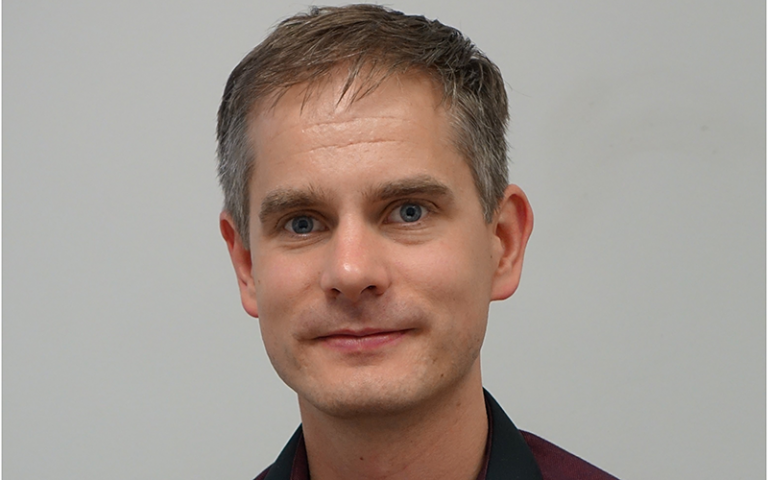Benjamin Joachimi promoted to Professor of Astrophysics
1 November 2021
The Cosmoparticle Initiative congratulates Benjamin Joachimi, following his promotion to Professor of Astrophysics in October 2021

Benjamin Joachimi gained a PhD in Astrophysics, on Cosmic shear and the intrinsic alignment of galaxies, at the University of Bonn in 2010, and joined UCL in 2013 as a lecturer. His research focuses on answering major questions in cosmology such as whether Einstein’s theory of gravity holds on the largest scales. Benjamin is a coordinator of the ESO Kilo-Degree Survey (KiDS) weak lensing team, a founding core member of the Cosmoparticle Initiative, and is also currently the Chair of the Physics and Astronomy Equality, Diversity, Inclusion committee.
What brought you to Astrophysics?
I got a small telescope as a teenager, but no one in the family knew how to operate it or what the celestial objects one could see with it really were. So, I gradually became an amateur astronomer and eventually decided to study physics.
What is your main research focus for the coming few years? Is there a specific challenge that you are keen to take on?
We have just entered the golden era of galaxy surveys (DESI, Euclid, Rubin). My focus over the next few years will be to process these huge, high-quality datasets. We expect to use them to produce a much more complete picture about what our Universe is composed of – the nature of dark energy, in particular – and how the rich variety of galaxies we observe formed.
What has been the most exciting moment in your researcher’s life to date?
A recent nail-biting moment was the ‘unblinding’ of the most advanced cosmological analysis of the Kilo-Degree Survey to which I contributed as a core team member. After several years of hard work to obtain results, we did not know where our results would come to lie – we deliberately ‘blinded’ ourselves to those results to avoid any unconscious bias in the way we carried out our analysis. When we removed this blinding, it turned out we were reassuringly consistent with earlier studies. But intriguingly, we found a small but significant difference compared with measurements from the early universe. This could be a hint of some new physics happening.
Tell us more about the research teams you manage and work with, at UCL and beyond.
As a survey astronomer, I work with large international teams that collaboratively process and analyse very large datasets, and also make these available for the wider research community. For instance, I am a co-lead of the weak lensing team in the Kilo-Degree Survey, which prepares the public data releases and carries out the main cosmological analyses. In the ESA Euclid space mission, I have responsibility for the final steps in the data processing, including quality control of the data before it is released to scientists for exploitation. My research team at UCL is composed of PhD students and postdocs who span the full range of survey science. That can be anything from writing big-data processing software to creating models of the cosmic large-scale structure, and producing new insights about cosmology and the evolution of galaxies.
You are the Chair of the UCL Physics and Astronomy Equality, Diversity, Inclusion committee (EDI). Can you tell us more about this role and how the Committee makes a difference?
The EDI committee largely works in the background, making sure that our diverse Department, with more than a thousand members in total, has policies in place that ensure everyone can work in a welcoming and pleasant environment. On the one hand we make sure that we comply with the expectations of the university, of funding bodies, and of professional societies; on the other hand, we listen to the concerns of the many demographics in the Department and implement improvements to the way we operate.
What one piece of advice would you give to aspiring Astrophysicists?
If you want to become an astrophysicist, I’d say follow your dream but keep your eyes and mind open. Astrophysics is a great pathway into science, and studying astrophysics turns you into a scientist with broad and extremely useful skills. There may not be many jobs that allow you to do astrophysics for the rest of your life, but you will also be in an excellent position to tackle many of the huge challenges facing us back down on Earth.
Links:
Cosmology with Galaxy Shapes - Benjamin Joachimi - YouTube
Cosmology with the responsible use of machines (Benjamin Joachimi, UCL) - YouTube
Dark Matter Day 2020 UCL - YouTube
Discussion with Benjamin Joachimi (EUCLID Project Scientist) - YouTube
 Close
Close

